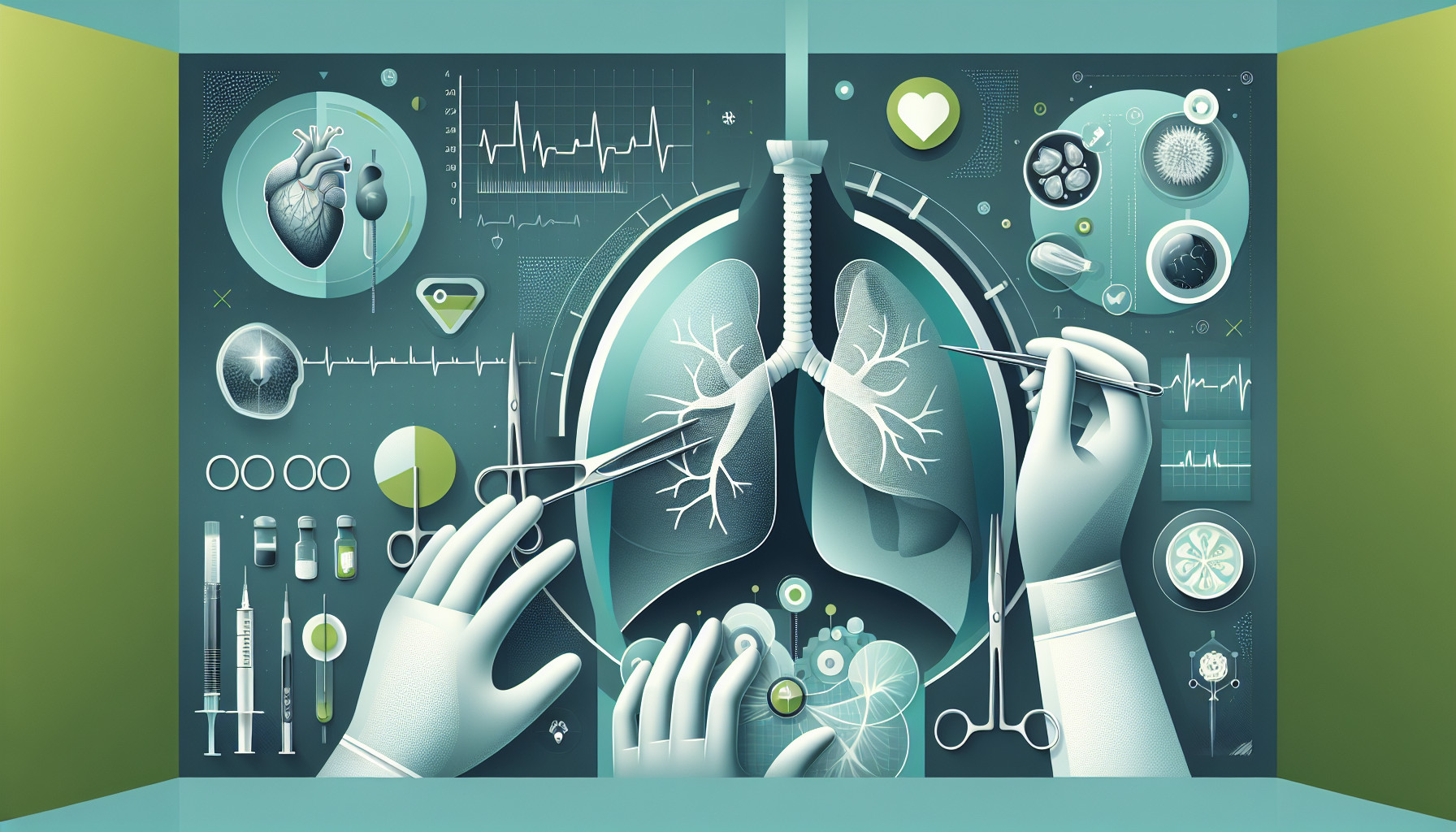Our Summary
This research paper does not have an abstract available, but the keywords suggest that it discusses the relationships between Burkitt lymphoma, bronchiolitis obliterans syndrome, diastolic heart failure, and heart-lung transplantation.
Burkitt lymphoma is a type of non-Hodgkin’s lymphoma, a cancer affecting lymphocytes, which are cells in the immune system. Bronchiolitis obliterans syndrome is a serious and life-threatening lung disease, often linked to lung transplants. Diastolic heart failure refers to a condition where the heart does not fill with blood properly, often due to stiffening of the heart muscles. A heart-lung transplant is a surgical process where both the heart and lungs are replaced with healthy organs from a donor.
The paper likely explores how these conditions may interact with one another, possibly investigating the risks, complications, or outcomes associated with heart-lung transplants in patients with these conditions. However, without more specific details or an abstract, it’s hard to provide a more detailed summary.
FAQs
- What is Burkitt lymphoma and how is it related to lung transplants?
- What is bronchiolitis obliterans syndrome and how can it impact lung transplant recipients?
- How does diastolic heart failure affect a heart-lung transplant?
Doctor’s Tip
It is important to follow a strict medication regimen after a lung transplant to prevent rejection and infection. Make sure to attend all follow-up appointments and communicate any changes in your health to your transplant team. Additionally, maintaining a healthy lifestyle with regular exercise and a balanced diet can help support the success of your transplant.
Suitable For
Patients who are typically recommended for lung transplant include those with end-stage lung diseases such as:
- Chronic obstructive pulmonary disease (COPD)
- Cystic fibrosis
- Pulmonary fibrosis
- Pulmonary hypertension
- Alpha-1 antitrypsin deficiency
- Bronchiectasis
- Interstitial lung disease
Patients with severe symptoms that significantly impact their quality of life and are not improving with other treatments may be considered for lung transplant. Additionally, patients who are at high risk of death within 2-3 years without a transplant may also be recommended for the procedure. Each patient is evaluated on a case-by-case basis by a transplant team to determine if they are a suitable candidate for lung transplant.
Timeline
- Patient is diagnosed with end-stage lung disease and referred for evaluation for lung transplant.
- Patient undergoes comprehensive medical and psychological evaluations to determine eligibility for transplant.
- Patient is placed on the transplant waiting list and waits for a suitable donor.
- Patient receives a call that a donor has been found and undergoes lung transplant surgery.
- Patient is closely monitored in the intensive care unit post-transplant for any complications.
- Patient begins the recovery process, which includes physical therapy, pulmonary rehabilitation, and frequent medical follow-up appointments.
- Patient must adhere to a strict medication regimen to prevent rejection of the new lungs.
- Patient gradually improves in lung function and quality of life over time.
- Patient may experience complications such as infections, rejection episodes, or development of other medical conditions post-transplant.
- Patient continues to be monitored closely by a transplant team for the rest of their life.
What to Ask Your Doctor
- Am I a candidate for a lung transplant?
- What are the risks and potential complications of a lung transplant?
- How long is the waiting list for a lung transplant?
- What is the success rate of lung transplant surgery?
- How will my life be different after a lung transplant?
- What medications will I need to take after the transplant?
- How often will I need to follow up with my transplant team?
- What signs or symptoms should I watch for that could indicate rejection or complications?
- How can I maintain my overall health and wellness after a lung transplant?
- Are there any dietary or lifestyle changes I should make before or after the transplant?
Reference
Authors: Hayes D Jr, Winlaw DS, Wilmot I, Alten JA, Morales DLS. Journal: Pediatr Transplant. 2022 Nov;26(7):e14365. doi: 10.1111/petr.14365. Epub 2022 Aug 3. PMID: 35920017
